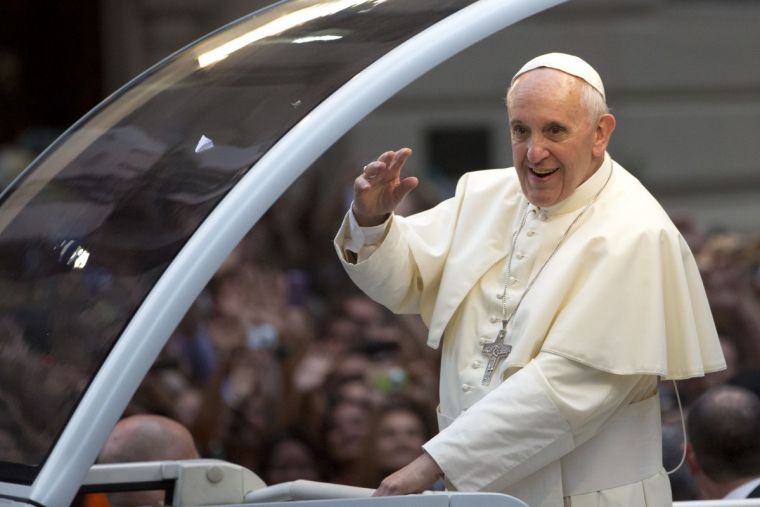Lessons of Love : What the Church of England can learn from the Pope

Pope Francis has been in the news again this week following the Vatican's announcement of an unprecedented opinion poll of Catholics worldwide. The survey will cover previously taboo subjects such as pastoral care for same-sex couples and the marginalisation of divorced Catholics. Responses will be considered during an Extraordinary Synod of Bishops focusing on 'Pastoral Challenges of the Family in the Context of Evangelisation'.
This extraordinary move comes in the same week that the Pope prayed with a severely disfigured man during his weekly mass; the video of this touching scene went viral within hours on social media.
What's more, it is only the latest in a series of heartening moves from the enigmatic Pope Francis who has spoken out against the war in Syria and the greed at the heart of the global economy.
Compare it with the Church of England which seems hindered by its lack of clarity on women bishops and in disarray over the question of gay marriage. At worst it is perceived as out of touch, remote and largely irrelevant to anyone under the age of 35.
The Archbishop of Canterbury's position is an unenviable one, yet the leadership of the Church of England as a whole can learn much from Pope Francis.
Lessons of love
Reach out: His prayers with the disfigured worshipper reinforce the Pope's approachability and tenderness for his flock. He presents a humble, human face; the essence of the true message of Christianity.
Listen to the people: The launch of this week's questionnaire is an ambitious move. How the Vatican will respond to its results remains to be seen but there are tangible reasons for hope. What matters is that the Pope is reaching out to the people whose opinions matter the most – the 1.2 billion Catholics around the world.
Actions not just words: The expulsion of Bishop Franz-Peter Tebartz-van Elst from his £26.4 million residence in the diocese of Limburg in Germany demonstrates the Pope's determination to create a 'poor church … for the poor'; one which eschews the traditional trappings of luxury and privilege.
Fighting poverty: Pope Francis has suggested that empty monasteries could be used for migrants and the homeless. Moreover, in his bid to fight poverty he met with the President of the World Bank – urging action for the sake of the people, not simply money.
Evangelism: In July the Pope held a mass at the Catholic youth festival on Copacabana Beach in Brazil attended by an estimated three million worshippers. There he urged his followers to spread the word of God 'We cannot keep ourselves shut up in parishes, in our communities, when so many people are waiting for the Gospel'.
A spirit of longing?
It is early days still for the new Pope but from where I'm standing, I confess to being somewhat taken with his leadership, his humility and the hope he gives to our own secular society. In the words of 1 John 4:16 'God is love. Whoever lives in love lives in God, and God in them'.
While some are disillusioned with the Church of England, the burgeoning trend of Sunday assemblies – so-called 'churches without God' – springing up across the country reveal a yearning for spirituality and a desire to demonstrate love and kindness towards others – the essence of Christian values.
Fundamental respect for the Christian tradition is also evident in the media's coverage of the recent baptism of HRH Prince George. The festive period too will no doubt see many churches full of people eager to celebrate the true message of Christmas.
If the Church of England can tap into these longings, like Pope Francis, it too can begin to overturn the perceived decline of Christianity.











